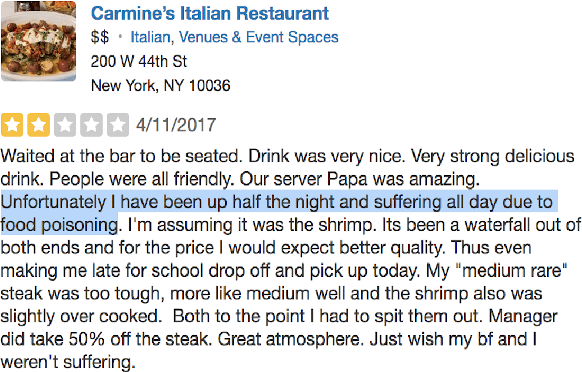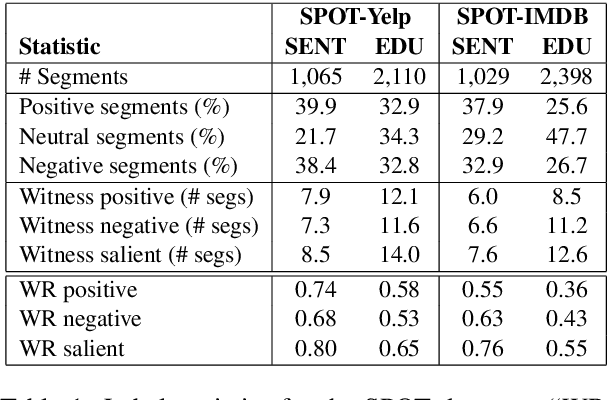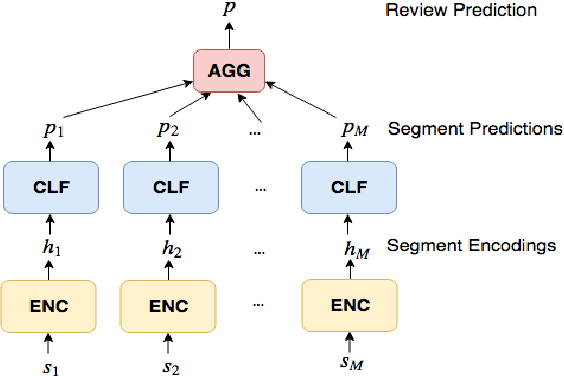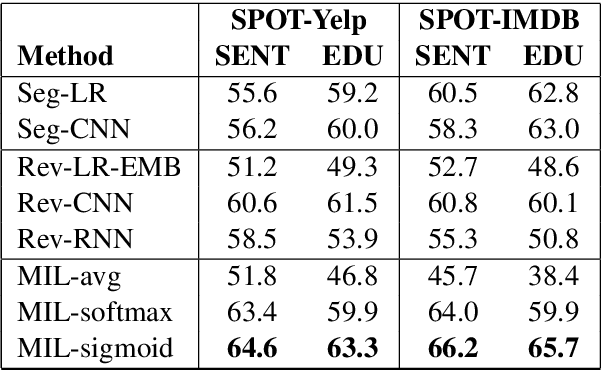Weakly Supervised Attention Networks for Fine-Grained Opinion Mining and Public Health
Paper and Code
Sep 30, 2019



In many review classification applications, a fine-grained analysis of the reviews is desirable, because different segments (e.g., sentences) of a review may focus on different aspects of the entity in question. However, training supervised models for segment-level classification requires segment labels, which may be more difficult or expensive to obtain than review labels. In this paper, we employ Multiple Instance Learning (MIL) and use only weak supervision in the form of a single label per review. First, we show that when inappropriate MIL aggregation functions are used, then MIL-based networks are outperformed by simpler baselines. Second, we propose a new aggregation function based on the sigmoid attention mechanism and show that our proposed model outperforms the state-of-the-art models for segment-level sentiment classification (by up to 9.8% in F1). Finally, we highlight the importance of fine-grained predictions in an important public-health application: finding actionable reports of foodborne illness. We show that our model achieves 48.6% higher recall compared to previous models, thus increasing the chance of identifying previously unknown foodborne outbreaks.
 Add to Chrome
Add to Chrome Add to Firefox
Add to Firefox Add to Edge
Add to Edge